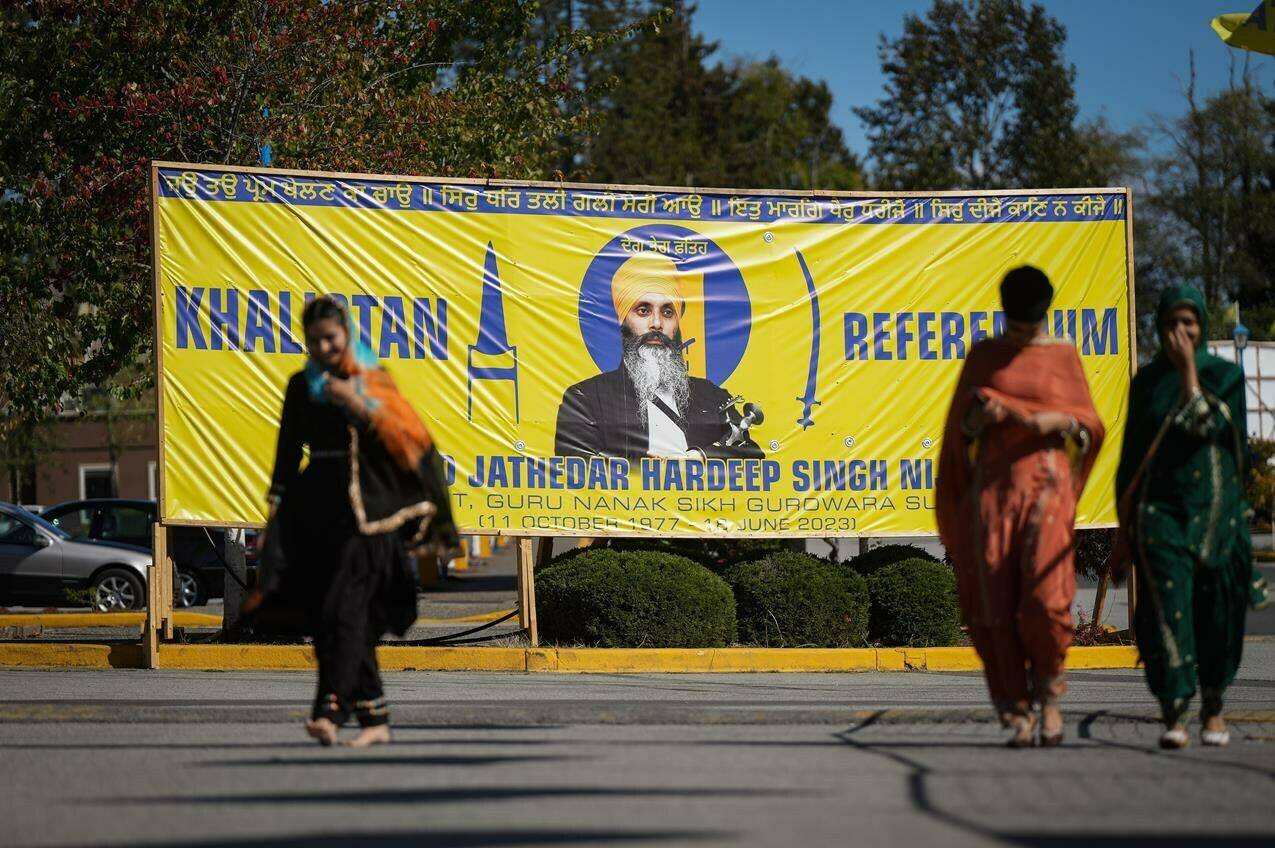Canada’s allegations about India’s links to the killing of activist Hardeep Singh Nijjar have significantly bolstered vocal support for the movement calling for an independent Sikh state, said organizers of an upcoming referendum.
The group Sikhs For Justice is scheduled to hold a second round of voting for its unofficial referendum on Khalistan — referring to an independent Sikh state in India — on Sunday (Oct. 29) at the gurdwara in Surrey, B.C., where Nijjar was shot on June 18.
Gurpatwant Singh Pannun, the group’s lawyer and spokesman, said organizers are expecting “thousands” of voters after the first vote in September drew such large crowds that a second day of voting was deemed necessary.
Pannun said while many supporters of the Khalistani movement had been reluctant to voice their opinions over fear of being labelled a terrorist, they now have confidence to speak out after Prime Minister Justin Trudeau’s statement that there were “credible allegations” of a potential link between the Indian government and Nijjar’s killing.
“The community has really taken it to a point where … they have formed the belief that if they do not come out in large numbers, these killings will continue,” Pannun said from Washington, D.C., where he is en route to Vancouver for this weekend’s vote.
He said Trudeau’s statement to Parliament on Sept. 18 has opened more frank discussions in countries such as the United States and Great Britain on India’s handling of the fallout from Nijjar’s killing, allowing supporters to vocalize their positions without fear.
“Now they are more vocal, and they will be coming in the thousands in Surrey and in the future Khalistani voting centres,” Pannun said.
The Indian government has denied involvement in Nijjar’s death, calling the allegations “absurd.”
Nijjar had been wanted in India for what authorities say were links to terrorism, including an alleged attack on a Hindu priest, an allegation that Nijjar denied.
Nijjar was also a key organizer of the Canadian referendums. Similar votes have been held in the United Kingdom, Australia, Italy and Switzerland.
The Indian government has long maintained that independence activists in the Punjab region undermine India’s national security, while Canada said its citizens have freedom of speech if they don’t incite violence.
A 2005 Canadian government report concluded that the 1985 Air India bombings that killed 331 people were carried out as a result of a conspiracy by Sikh Khalistani separatists that was “planned and executed” in Canada. Only one man, bomb maker Inderjit Singh Reyat, was ever convicted.
India-Canada relations have frayed since Trudeau’s statement about Nijjar’s killing.
Earlier this month, Foreign Affairs Minister Melanie Joly said Canada had removed 41 of its 62 diplomats from India after Indian authorities threatened to strip diplomatic immunities for Canadian officials and their families.
There have been signs of thawing relations, as India said this week it is resuming entry visa services in Canada for some categories, including business, medical and those wanting to attended conferences.
Visas for tourists, students, journalists and missionaries appear to remain restricted.
“Emergency situations will continue to be addressed by the high commission (of India) and the consulates general as it is being done currently,” said a statement posted to Indian consulates’ websites.
Pannun said Sikhs For Justice has “never incited, provoked or promoted any kind of violent activity.
However, he said India believes the referendum on Khalistan is a violent activity.
“That’s India’s version,” Pannun said, adding that members of the activists community are acting to protect their democratic rights by voting.
“Whenever there is going to be injustice, you need raise your voice, even if you have to lose your life. So, this is the basic principle of Sikhism, and that’s what we follow.”
The first vote in September included a question on whether voters felt India was involved in Nijjar’s killing, but Pannun said the question has been removed since Trudeau made his comments.
Chuck Chiang, The Canadian Press

